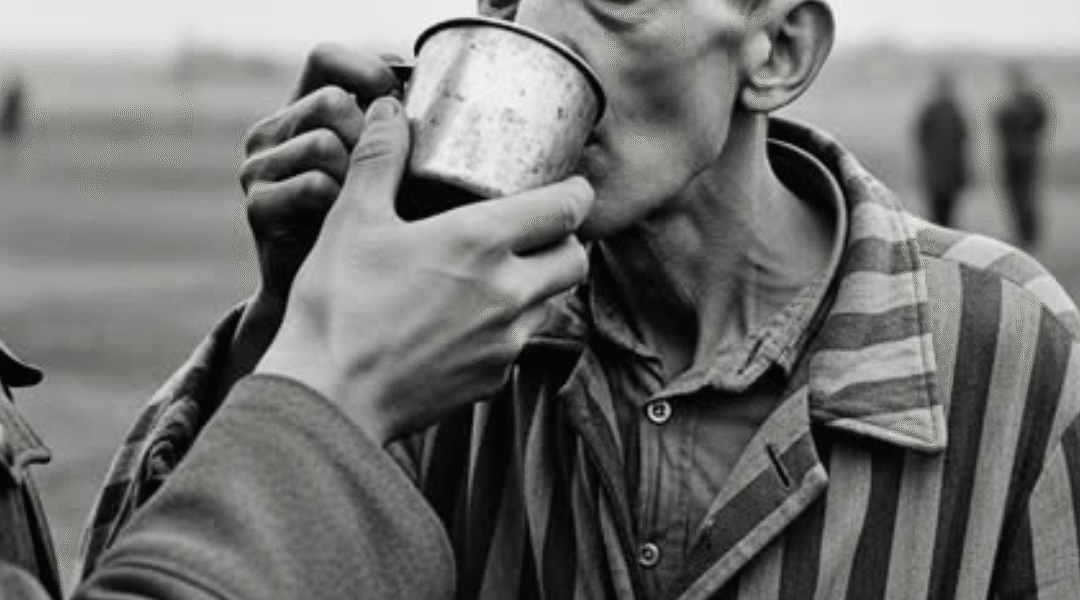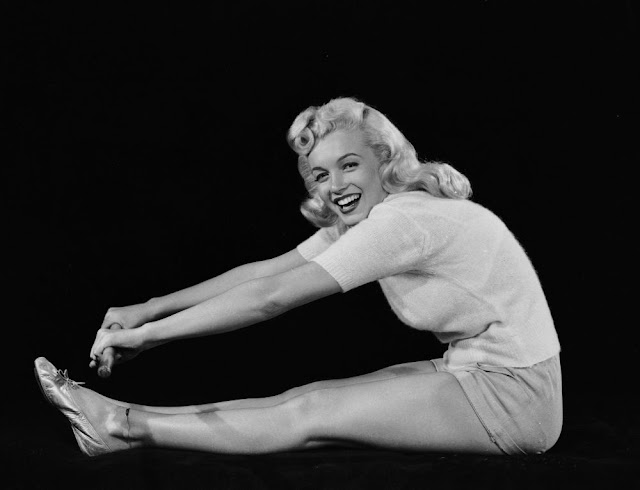“Water Cup – Bergen-Belsen, 1945”
It was a moment that shouldn’t have happened, yet it split the silence like lightning. In a camp where human bodies had become shadows of their own memories, a British soldier held out his hand, holding a metal cup. The water inside it trembled, as if it, too, were aware that it was becoming more than just a liquid—a promise that the world could still be good. The prisoner in striped uniform, his face a map of suffering, leaned toward the cup as if it were a relic. He trembled, yet he drank—slowly, as if each sip were his last.
We don’t know what he thought at that moment, though his gaze—full of silent disbelief—spoke a thousand words. He could see the reflection of his former face in that water, the boy he once was. Or perhaps the faces of those who had never had a chance to drink a single drop. When the cold metal touched his lips, tears streamed down his cheeks, mixing with the remnants of the water, as if he wanted to hold it within him forever.
The soldier holding the cup didn’t look away. There was no victory in his eyes, no pride—only the silence of a man who knows he’s faced with a mystery greater than war. The gesture of offering the cup wasn’t just an act of mercy; it was breaking down a wall that had been built over the years with wire, hunger, and fear. It was the answer to a question no one dared to ask: after such hell, can a person still be a human being?
Anyone who looked at this scene knew they were witnessing something more than just a thirsty drink. It was a lesson that cannot be written in textbooks. It was a moment when history held its breath, reminding itself for the first time in years that hope never completely dies. That cup became a bridge between two worlds—one marked by suffering, the other promising rebirth.
But was it really just a cup of water? Many accounts from Bergen-Belsen speak of people dying with their stomachs full, their bodies no longer able to accept the gift of life. Perhaps this water was a risk, perhaps a test to see if the body could still accept nature’s simplest gift. Perhaps in every sip lurked the danger that life and death would become indistinguishable. This was something no one said aloud.
Yet the prisoner’s gaze revealed something more than physical desire. He saw in this gesture a foreshadowing of a world that might return. A world where you don’t have to be afraid to raise a cup to your lips, lest someone snatch it away mid-motion. A world where a person, even a stranger, will offer you a hand instead of pushing you toward your downfall.
Those who survived that day later recalled that the smallest moments held the greatest significance. A smile, the offering of bread, the touch of a hand. But the cup of water—that simple, metal mug—rose above all else. Perhaps because it was something everyday, ordinary, yet in that place it assumed the status of a miracle.
And when we close our eyes, it’s easy to see how, drop by drop, humanity returned to the faces of the devastated. Not yet whole, still fragile as glass, but enough to know that hope exists. And with it, a mystery we will never fully uncover: how it was possible that, in a world filled with death, a single offering of a cup could become an act of salvation greater than a thousand words.





